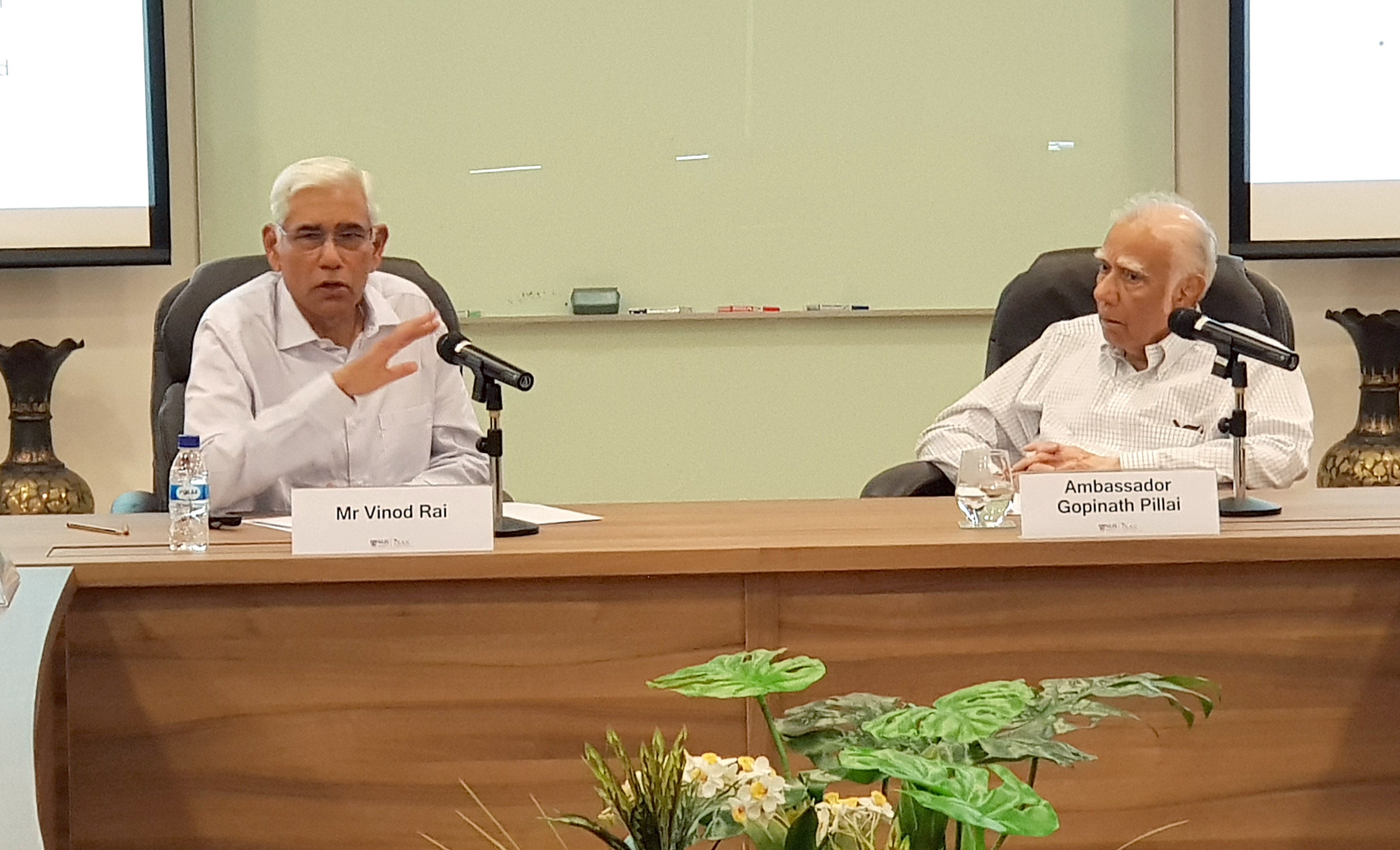
| Event Title: | ISAS Closed Door Session |
| Topic: | Proposal to Impeach a Chief Justice – Can it ever be Apolitical? |
| Date/Time: | 10 May 2018 | 14:30 - 20:34 |
| Venue: | ISAS Board Room, Level 9, 29 Heng Mui Keng Terrace |
| Speaker/s: | Mr Vinod Rai |
| Description: | Mr Vinod Rai, Distinguished Visiting Research Fellow, ISAS; and 11th Comptroller and Auditor General of India was invited for a closed door session on ‘Proposal to Impeach a Chief Justice – Can it ever be Apolitical?’. The session was chaired by Ambassador Gopinath Pillai, Chairman, ISAS, NUS, and Ambassador-at-large, Ministry of Foreign Affairs, Singapore.
Mr Rai began his presentation by discussing the key features of the notice issued by the Congress and other opposition parties on 14 April 2018 for the impeachment of the Chief Justice of India, Dipak Misra. The notice was submitted to Vice President and Rajya Sabha Chairman M Venkaiah Naidu under five grounds of misbehaviour. This is the first time in the history of India that a motion for the impeachment of a Chief Justice of India has been presented. Mr Rai shared that the impeachment notice came a day after the Supreme Court rejected petitions seeking an independent probe into the death of Judge B H Loya, who was hearing the Sohrabuddin Sheikh encounter case. Mr Naidu rejected the impeachment notice on the claim that the opposition MPs’ notice was based on suspicion and lacked substantial evidence. Congress leader Kapil Sibal reacted saying that the Rajya Sabha Chairman's order was "ill-advised and illegal" and pointed to the need to set up an inquiry committee to look into the case. He later withdrew a petition challenging Mr Naidu’s decision to reject the impeachment notice. Touching upon the constitutional provisions laid out for impeachment of judges in the Supreme Court and High Courts, Mr Rai noted that a judge can be removed for proven ‘misbehaviour or incapacity’ only on an order from the President based on a motion passed by both Houses of Parliament. Mr Rai elaborated upon the consequences of a notice to impeach the chief justice. It weakens the judiciary, reduces its independence, emboldens the government to bring charges against any judge that it does not like, and poorly reflects all pillars of democracy in the country. Mr Rai shared that the Judges (Inquiry) Bill 2006, which was introduced to deal with complaints against judges, had not been passed. He emphasized the need to introduce a similar mechanism which will be internal to the judiciary. Mr Rai addressed a series of questions from the audience. Dr Narayan noted that several countries do not have a formal procedure for impeachment of a chief justice. In this context, he enquired why it is that a liberal democracy like India is pursuing a line not taken up by other countries. Mr Rai reiterated that every few years impeachment notices seem to be issued in India. This seems to be influenced by a political agenda. If politicians or politics is involved in the appointment of a chief justice, then it is bound to be involved in his/her impeachment as well. Invariably, the impeachment of a chief justice becomes a political matter. |


